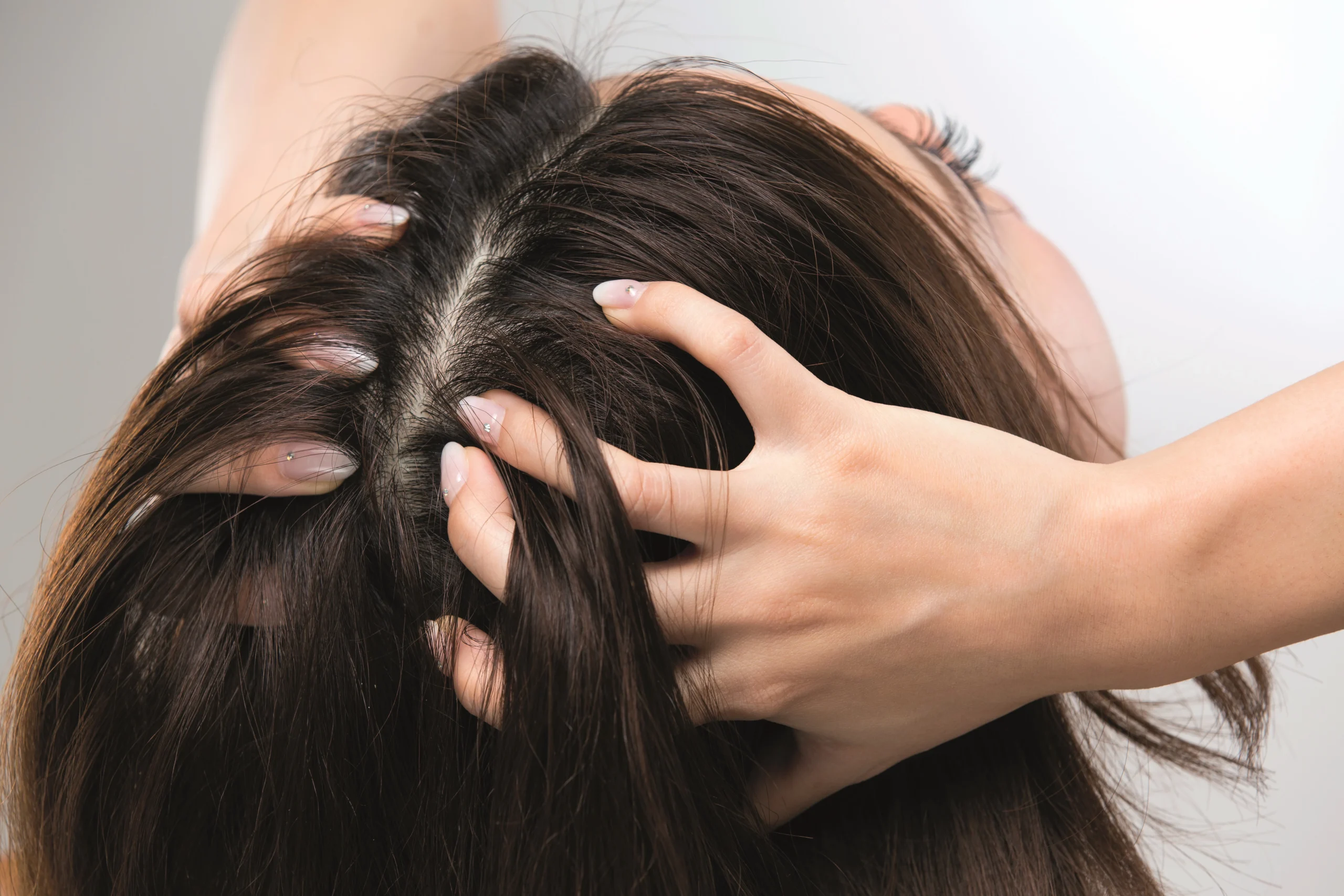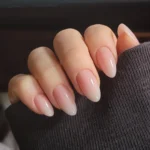Why does my scalp hurt when I move my hair? Rest assured that you are not alone in experiencing this situation and asking this question. Scalp pain is a common condition that affects both men and women. There are various causes of scalp pain, ranging from the impact of diseases to the influence of lifestyle and external factors. This article will provide a more comprehensive overview of the symptoms, causes, how to treat, and ways to prevent this unpleasant experience. Keep reading.

Having a sore scalp can be uncomfortable. Scalp pain can feel different for each person, and it’s hard to find good ways to feel better at home without using a lot of pain pills. Some people are hurt so much that they have to miss work or school.
Even though it’s tough to think clearly with scalp pain, it’s important to notice how the pain feels and if there’s any pattern to it. Does it feel dull, sharp, tight, or like a stabbing pain? When did it start, and does it happen all the time or only sometimes? Figuring out what makes the pain worse is also important. These things you notice can help you and your doctor figure out why your scalp hurts.
Common accompanying symptoms of scalp pain: skin that feels warm to the touch, flaking or itching, burning, pain that spreads (such as from the scalp to the face, jaw, neck or shoulders.
Causes of scalp tenderness
Scalp pain can be caused by a variety of factors, including:
Skin conditions
Scalp problems like psoriasis, dandruff, eczema, and seborrheic dermatitis can make your head feel uncomfortable and hurt. Psoriasis makes your skin cells grow too fast, causing red, itchy spots with silvery scales. Dandruff happens when a fungus makes your scalp skin flaky. Eczema is a long-lasting red and itchy skin issue that can also affect the scalp. Seborrheic dermatitis means your skin is oily and irritated, causing redness and flaking. These scalp problems not only make you physically uncomfortable but can also cause pain. It’s important to figure out what’s going on and get the right treatment to feel better and have a healthier scalp.
The Infections
Sometimes, tiny organisms like fungi and bacteria can cause problems on our scalp, leading to pain. Fungal infections, called tinea capitis, and bacterial infections, called folliculitis, are examples of these problems. Tinea capitis is when fungus attacks the scalp, causing discomfort. Folliculitis is a bacterial infection that affects hair follicles and can also cause scalp pain. If you ever experience scalp pain, understanding its cause will make discussing the condition with a doctor easier.
Stress and anxiety
Feeling stressed or anxious can make your head hurt. When you’re really stressed, your muscles can get tight, especially in your scalp. This might lead to headaches that make your scalp and neck feel uncomfortable. Sometimes, if you’re really anxious, you might do things like scratching your scalp or pulling your hair without even realizing it, and that can make the pain worse. Stress also makes your body release special chemicals, and this can cause your scalp to become inflamed, adding to the discomfort. So, when you’re feeling stressed out, it’s not just in your mind – it can make your head hurt too.
Hair care products
Using certain hair products may cause discomfort or pain on the scalp. Some shampoos, conditioners, or hair styling products contain ingredients that can irritate the scalp, causing redness or a burning sensation. You should pay attention to the ingredients in hair care products and choose gentle products suitable for your scalp. Additionally, some shampoos may not be strong enough to effectively clean the scalp, leading to excessive itching and scratching, which can also contribute to scalp pain. If you experience discomfort or pain, it may be a sign that a particular product is not suitable for your skin and you may want to consider switching to a gentler alternative.
Physical trauma
When your head experiences physical trauma, such as hitting something or being hit, it can lead to scalp pain. The scalp has many nerves, so when damaged, it can cause discomfort or pain. Even a minor accident like accidentally hitting your head on a low ceiling or door can cause temporary scalp pain. Be careful and avoid situations that could lead to physical injury to the head to prevent scalp pain. If you feel pain, you should rest and, if necessary, seek medical attention to ensure your overall health.
Other causes of scalp tenderness
Brushing or rubbing wet hair can cause hair follicles to break, leading to hair loss and scalp irritation. Although uncommon, a sensitive scalp can indicate more serious health conditions, including skin cancer and melanoma. These conditions may present as new or changing moles or persistent ulcers. Various scalp problems, such as acne and infections, can be potential causes. Additionally, the use of tight hairstyles, headbands, and helmets can contribute to these problems. Moreover, scalp pain can also result from lice infestation and sunburn.
How to treat scalp pain
When dermatitis is the cause of scalp pain, it may result from genetic factors, an overactive immune system, allergies, or exposure to irritants. The appropriate treatment varies based on the specific type of dermatitis. In certain instances, a straightforward solution may involve avoiding exposure to the triggering irritant or allergen.
When a scalp infection is identified as the cause, the treatment strategy depends on the specific type of infection. Options may involve oral administration of Keflex (Cephalexin) or the use of topical antibiotic cream Bactroban, accompanied by a mild cortisone cream to alleviate symptoms. Natural treatments such as tea tree oil, apple cider vinegar, and aloe vera can be effective in promoting wound healing and reducing inflammation. However, it is advisable to consult a healthcare professional for individualized advice on the most appropriate way to treat scalp infections treatment at home.
Hair extensions can also cause scalp discomfort for a variety of reasons (weight or chemical irritation involved among them) and have been linked to headaches and hair loss. The treatment for scalp pain caused by hair extensions is simply to remove them.
Preventing scalp tenderness
Hair care routine
Promote gentle hair care with a mild, sulfate-free shampoo and conditioner, minimizing rubbing and scrubbing during washing, and practicing gentle detangling and brushing techniques.
Reduce scalp strain by choosing looser hairstyles like loose ponytails or braids instead of tightly pulled-back buns, and opt for proper hair accessories such as soft ties or scrunchies rather than tight elastics.
Protect Your Scalp from the Sun
To shield your scalp from the sun, wear a hat when spending time outdoors. Opt for a wide-brimmed hat to provide maximum coverage and safeguard your scalp from harmful UV rays, preventing potential sunburn and long-term damage
Manage Stress
While a scalp massager can be great for relaxation, for deep stress management consider techniques like meditation or yoga. These practices can effectively reduce stress and leave you feeling calmer, which can contribute to overall well-being and potentially hair health.
Healthy Diet
Ensure to consume a balanced diet rich in vitamins and minerals. Consuming a balanced selection of nutrients, including vitamins such as A, E, and D, as well as minerals like zinc and iron, provides crucial support for the overall health of your scalp. Drinking sufficient water helps keep the scalp hydrated, promoting a healthy environment for hair growth and minimizing the risk of dryness or irritation.
When to consult a doctor
If you encounter symptoms like a severe headache or a rash extending beyond your scalp to other body parts, it is advisable to consult your healthcare provider.
Persistent scalp soreness lasting beyond one to two weeks warrants investigation by a medical professional. This encompasses soreness stemming from conditions like dermatitis, arthritis, psoriasis, fibromyalgia, and recurrent tension headaches, some of which may be chronic and necessitate ongoing management. A doctor can assess your scalp and overall health to determine the cause of your pain and recommend the appropriate course of action.
FAQ
1. How to cure scalp psoriasis permanently
Scalp psoriasis currently lacks a definitive cure. While a cure is not available, treatments can effectively alleviate symptoms. Options include UV light therapy and medications applied topically, injected directly into the lesions, or taken orally.
2. How to clean your scalp
For an effective scalp cleanse, wet your hair, apply a small amount of mild shampoo, and massage gently in circular motions. Rinse with warm water, avoiding hot water, and consider using conditioner for added moisture.
3. How to treat pimples on the scalp
To address scalp pimples, keep your scalp clean, use a gentle shampoo, and avoid scratching. Applying a medicated shampoo with salicylic acid or tea tree oil can help. If the issue persists, consult a dermatologist for personalized advice.
4. Why do I experience scalp pain while pregnant?
Scalp pain during pregnancy may be due to hormonal changes affecting the skin, leading to changes in scalp condition. Fluctuating hormones can worsen existing scalp problems or cause new developments. Hormonal changes can also contribute to headaches and migraines.
Conclusion
Scalp pain, although uncomfortable, can often be controlled and treated effectively. By determining the underlying cause, you can take the appropriate steps to relieve pain and restore scalp health. While self-care measures such as gentle cleansing and avoiding harsh products can be helpful, don’t hesitate to seek professional medical advice if pain becomes severe, persistent or painful. accompanied by other related symptoms. Remember, your scalp is an important part of your overall health and taking care of it not only ensures your health but also your overall comfort and confidence.







